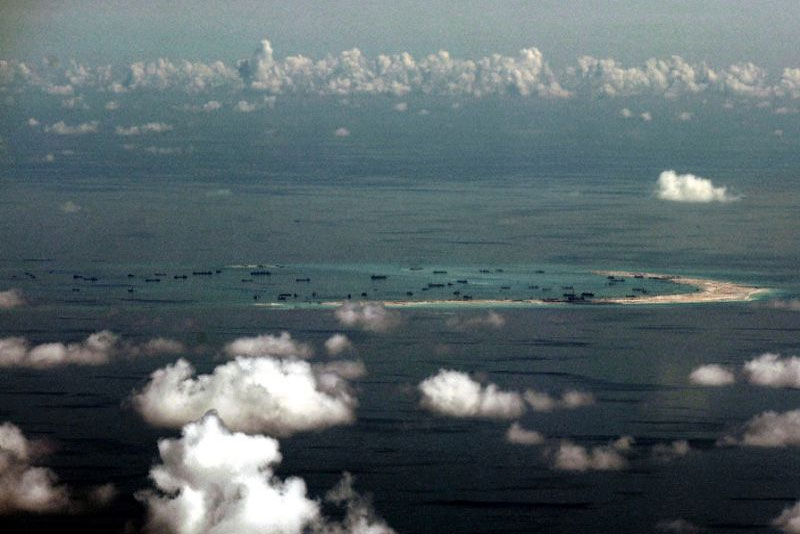
MANILA, Philippines — The Philippines and other countries with claims in the South China Sea can work out a joint undertaking so they can at least maintain the status quo without having to sacrifice their respective positions, a Washington-based expert on Southeast Asia said.
Gregory Poling of the Center for Strategic and International Studies (CSIS) and director of the Asia Maritime Transparency Initiative (AMTI) said leaders should shed off defeatism and actively explore ways to promote regional peace.
“There are lot of options between surrender and war that are not being tried,” Poling told journalists at the Joint United States Military Assistance Group (JUSMAG) at Camp Aguinaldo on Friday.
China has been aggressively staking claims in the South China Sea and the West Philippine Sea by expanding its patrols and building artificial islands.
The Duterte administration has chosen not to confront Beijing on the latter’s provocative activities, saying the Philippines cannot afford to go to war with China.
But Poling stressed that going to war is not the only option. Non-aggressive approaches that rival claimants can explore are the adoption of a joint fishery and marine conservation code as well joint developments in the region.
In a blueprint for fisheries and environment cooperation presented by Poling, claimant states should jointly look after all the designated fishery and marine protective areas in order to avert a fisheries collapse.
Told that China might not like the idea, Poling said it’s still worth a try, as letting Beijing to unilaterally dictate the rules of the game would be worse.
All but Brunei among claimant states have troops deployed in the region, with China lording over them.
“We never try, so how do we know the Chinese won’t agree to it?” Poling, said.
He said that for all its tough posturing, Beijing still wants to be seen as a responsible leader in the region.